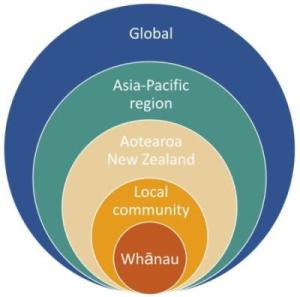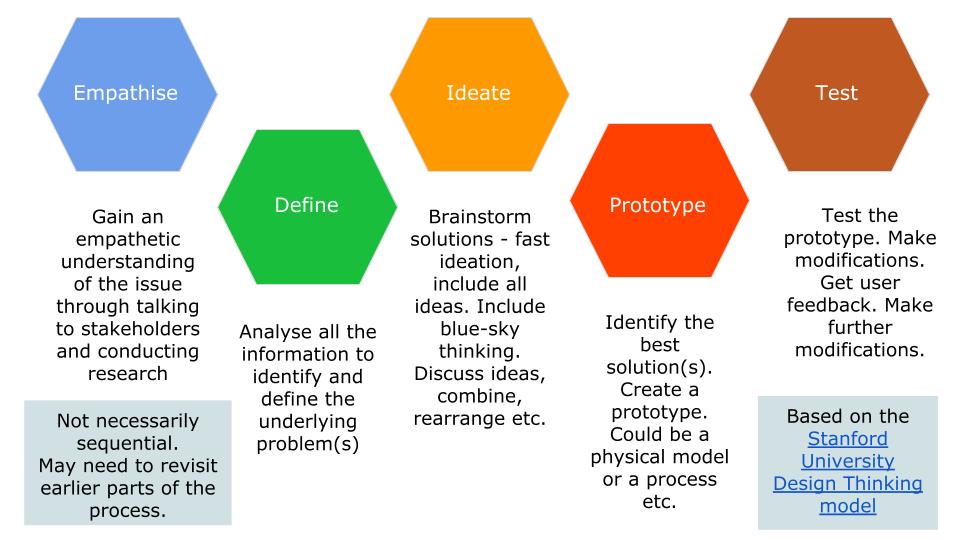Inquiry-based learning is a constructivist approach, in which students have ownership of their learning.
It starts with exploration and questioning and leads to investigation of a worthy question, issue, problem or idea. Inquiry involves asking questions, gathering and analysing information, generating solutions, making decisions, justifying conclusions and taking action.
An inquiry approach is a great way to find out about the people and culture of other countries, which can then lead to questions and deeper examination. It is an ideal way to approach investigations into global citizenship-related issues and authentic contexts such as climate change, Indigenous rights, sustainability and injustice or to explore needs and opportunities.
Authentic contexts
The more authentic the inquiry the better. It can be helpful to start looking at global issues from a local perspective, examining their effects on whānau, the local community or Aotearoa New Zealand, thinking globally and acting locally, before broadening the inquiry to more global contexts.

An inquiry could start with a question or provocation. Sometimes, these will come from ākonga, other times the teacher may start the discussion. Provocations could include pictures, videos, stories, quotes, questions or artefacts.

Books with GCED themes to provoke inquiry
Picture books
(Picture books are not just for younger children – many have themes that can be explored with any age.)
The Stuck There Forever Boat by Gillian Torckler. This story was inspired by the Tuvaluan people, whose low-lying island nation is under threat due to the rising sea levels associated with global warming. This story highlights the human dimension of the effects of global warming on families.
Our House Is on Fire: Greta Thunberg's Call to Save the Planet by Jeanette Winter. The story of the 16-year-old climate activist who has sparked a worldwide student movement.
Gibberish by Young Vo. A young boy moves to a new country where he doesn’t understand the language.
Rainbow Weaver by Tejedora del Arcoiris. Ixchel, a young Mayan girl, tries to continue the Mayan tradition of weaving. However, she can’t find any yarn to use so seeks alternatives and eventually uses plastic bags.
Child of the Flower-Song People by Gloria Amescua. A lyrical biography of an Indigenous Nahua woman from Mexico who taught and preserved her people's culture through modelling for famous artists.
Talking With Mother Earth by Jorge Argueta. Bilingual poems explore a young native boy's connection to Mother Earth and how he is healed from the terrible wounds of racism he has endured.
Books for older students/young adults
Wide as the Wind by Edward Stanton. A young adult novel set on a fictional island near Vaitéa (Easter Island). It’s a story of love and adventure but also deals with deforestation and the collapse of a natural habitat on a prehistoric Polynesian island.
I Am Malala: How One Girl Stood Up for Education and Changed the World by Malala Yousafzai with Patricia McCormick. The memoir by Nobel Peace Prize winner Malala Yousafzai.
Marley Dias Gets It Done: And So Can You! by Marley Dias. Marley Dias, who started the #1000blackgirlbooks campaign, speaks to kids about her passion for making our world a better place and how to make their dreams come true.
Tu Rangaranga: Rights, Responsibilities and Global Citizenship in Aotearoa New Zealand edited by Margaret Forster, Sharon McLennan, Carol Neill, David Littlewood and Rand Hazou. Written for adults, this is part of a series of books exploring and promoting citizenship in Aotearoa and beyond.

Having a Wonder Wall where ākonga can post their questions and wondering can also be a good place to start. Ākonga write their questions on Post-it notes and add them to the wall. This could be a class or group exercise or could be added to at any time. You could have one section for questions relating to the current classroom topics and one for any other questions.
Inquiry models/frameworks
An inquiry model can help to frame the inquiry. Some models can be found in the related links section. The Ministry of Education’s Pūtātara site has a model and useful prompts for beginning an inquiry. Below is Stanford’s Design Thinking model, which can be a useful starting point.

Global citizenship education inquiry examples
Ākonga could:
compare the way Indigenous people are treated in Aotearoa New Zealand to another country in the Asia-Pacific. They could identify common themes or identify one to focus on and explore ways they could take action to create change.
explore and identify opportunities to develop stronger ties with another Asia-Pacific country, then select a way they could act upon their findings.
explore the major challenges facing their community (for example, climate change, sustainability, Indigenous rights) and how these compare with those faced by other Asia-Pacific nations. Which issues are the most relevant? What can they do to make a difference?
explore what actions are already taking place in the Asia-Pacific to address challenges related to global citizenship education. What are the barriers to the existing actions? How might these be overcome? What are our responsibilities in relation to these challenges
